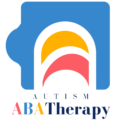ABA Initial Assessment
ABA initial assessment, conducted by a BCBA, is an indispensable tool in designing effective interventions for children with autism spectrum disorder. By incorporating thorough assessments, family history considerations, and collaboration with insurance providers, BCBA professionals create personalized treatment plans that lead to meaningful progress for each unique child.
What is an ABA Initial Assessment?
An ABA Initial Assessment is a fundamental step in Applied Behavior Analysis (ABA) therapy, serving as a comprehensive evaluation to understand a child’s behavior, strengths, weaknesses, and areas requiring intervention, particularly for children with autism spectrum disorder. This assessment is crucial in formulating an individualized treatment plan.

Components of an ABA Initial Assessment:
An ABA initial assessment typically comprises two major components:
Behavioral Assessment
- Delves into understanding behavior patterns, functions, and triggers.
- Involves observation, interviews, and potentially a functional behavior assessment.
- Identifies root causes of specific behaviors.
Skills Assessment:
- Identifies strengths, weaknesses, and developmental gaps.
- Evaluates abilities in communication, social skills, motor skills, and daily living activities.
- Provides a comprehensive understanding of the child’s behavior and abilities.
Together, these components provide a comprehensive understanding of the child’s behavior and abilities, aiding in formulating an effective treatment plan.

Conducting a Behavioral Assessment:
- Involves observations, interviews, and potentially a functional behavior assessment.
- Observations closely monitor behavior in various settings to identify patterns, triggers, and functions.
- Interviews with caregivers gather background information and insights into the child’s behavior.
- Functional behavior assessment analyzes antecedents, behaviors, and consequences.
Conducting a Skills Assessment:
Involves structured assessments and observations.
Evaluates abilities in communication, social interaction, academic skills, and adaptive behaviors.
- Utilizes standardized assessment tools, direct observation, and interaction with the child.

Benefits of an ABA Initial Assessment:
- Serves as a roadmap for creating an individualized treatment plan.
- Sets realistic treatment goals and provides a baseline for tracking progress.
- Offers a holistic understanding of the child to design tailored interventions.
- Facilitates a proactive and effective treatment plan.
Initial Assessment FAQs
What does an ABA initial assessment look like?
– Involves observations, interviews, potentially a functional behavior assessment, and skills evaluations.
How long can an initial assessment take?
– Duration varies based on the child and the complexity of their needs.
Will insurance cover the cost of an initial assessment?
– Many insurance companies cover ABA therapy, including initial assessments.
What will the board-certified behavior analyst do with the information from the initial assessments?
– Utilize information to formulate a personalized treatment plan addressing specific needs and goals.
In the assessment process, the Board-Certified Behavior Analyst (BCBA) will also consider the child’s family history, ensuring a thorough understanding of potential influences on behavior. The BCBA will get to know the child personally, recognizing that each child with autism spectrum disorder is unique, and interventions must be tailored accordingly.
While evaluating the child’s abilities, the BCBA will also take into account the Vineland Adaptive Behavior Scale, which assesses adaptive behaviors and daily living skills. This comprehensive approach ensures that the child’s individual needs are met. The BCBA may need to communicate and collaborate with the child’s insurance company to explore coverage for ABA therapy, considering that insurance companies often cover the costs, making this vital intervention accessible for families.
Services We Provide
Initial Assessment
Our initial assessment will help us focus our skills on the areas where the problem expresses itself the most. We can then start working on it and slowly build on that and expand our ABA therapy for autism to other precarious mental areas.
Early Intervention
ABA therapy for autism works best when applied early. We emphasize early intervention to help individuals fulfill their potential and progress in their educational, professional, and personal lives as independently as possible.
In-Home ABA Therapy
Our therapists collaborate with parents and caregivers, who are vital partners in the journey to positive change. Together, we build a strong foundation for progress for yourself and your loved ones.
School-Based ABA Therapy
Our interventions have been proven to help students succeed not only academically but also in building positive social relationships within the school community.
Telehealth ABA Therapy by a BCBA
Telehealth ABA therapy can be a game-changer. It breaks down barriers and makes essential therapy services more accessible to follow than ever before.
ADOS-2 Testing
The ADOS-2 is a semi-structured, standardized assessment instrument that includes play-based activities designed to observe signs of autism


